Godspell is written by Stephen Schwartz and John-Michael Tebelak. Originally opening as an Off-Broadway show in 1971, the musical went on to develop a cult following all over the world and is now frequently performed by various amateur groups. It has enjoyed numerous revivals, including a 2011 revival which played on Broadway from October 13, 2011 to June 24, 2012. The show is based on a series of parables from the Gospel of Matthew and Luke that are told with modern music, using lyrics from traditional hymns and scriptures. The show also deals with the Passion of the Christ towards the end of the show.
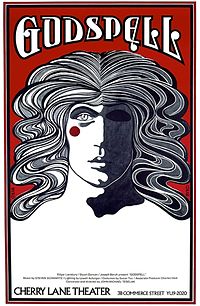
Stephen Schwartz
Stephen Schwartz
John-Michael Tebelak
the Gospels of Matthew and Luke
Edgar Lansbury, Stuart Duncan, and Joseph Beruh
John-Michael Tebelak
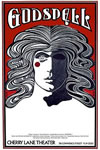
Original Off-Broadway Production
Cherry Lane Theatre - Opened 17 May 1971, closed 13 Jun 1976
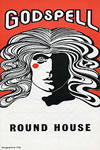
Original London Production
Roundhouse Camden, Wyndham's Theatre - Opened 17 Nov 1971, closed 1 Jan 1970
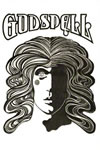
First Broadway Production
Broadhurst Theatre, Plymouth Theatre, Ambassadors Theatre - Opened 22 Jun 1976, closed 4 Sep 1977
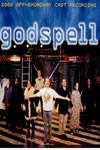
Off-Broadway Revival
York Theatre - Opened 2 Aug 2000, closed 7 Oct 2000
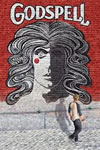
Broadway Revival
Circle in the Square Theatre - Opened 13 Oct 2011, closed 24 Jun 2012
What was your favourite production? Add your thoughts in the comments box
The Voice of God calls together a group of philosophers from throughout the ages, who sing their various ideas in contrast to one another in “Tower of Babble (Prologue).” Finally, John the Baptist calls their meeting to order with “Prepare Ye (The Way of the Lord)” and baptises them all.
Jesus arrives to be baptised, but John says Jesus should be baptising him. Jesus explains that his mission is to “Save the People.” He begins telling parables, encouraging them all to lead better lives, and the company act these stories out. He teaches the value of forgiveness and they sing “Day by Day.”
In the Parable of the Good Samaritan, Jesus shows his followers that they must love their enemies regardless of their personal beliefs. He explains that those who are rich on earth will be poor in Heaven and vice-versa, and that no man can serve both God and money. He encourages them to take heed of his parables (“Learn Your Lessons Well”). The group are learning to follow him, singing “Bless the Lord.”
When the group begins to question why good people are sometimes not given justice on earth, he replies that it is “All for the Best,” as they will be rewarded in Heaven (“All Good Gifts”). He reminds them of their capacity for good and how they can change society. They agree that Christ is the “Light of the World.” At the interval, the cast join the audience to share wine and bread.
The cast reprise “Learn Your Lessons Well” to encourage the audience to listen again. One member of the group encourages them to give up their obsessions with material things in “Turn Back, O Man.” Some members of the community begin to question Jesus’ teachings, but he is resolute and teaches them that the greatest commandment is to “love your neighbour as yourself.”
Some in the group come forward to accuse a woman of adultery, but Jesus responds that “he who is without sin” should “cast the first stone.” As he sends her away forgiven, she asks him to stay with her (“By My Side”). The whole community reflects on their “Beautiful City.” Soon, they gather for the Last Supper, after Judas betrays Jesus, and sets actions in motion that will lead to crucified, symbolically on an electric fence shaped like a cross. The company lead Jesus, now dead, in a procession to a reprise of “Prepare Ye (The Way of the Lord).”
- Prologue
- Prepare Ye the Way of the Lord
- Save the People
- Day by Day
- Learn Your Lessons Well
- Bless the Lord
- All For The Best
- All Good Gifts
- Light Of The World
- Turn Back, O Man
- Alas For You
- By My Side
- We Beseech Thee
- On The Willows
- Finale
UK: Josef Weinberger
USA: Musical Theatre International
